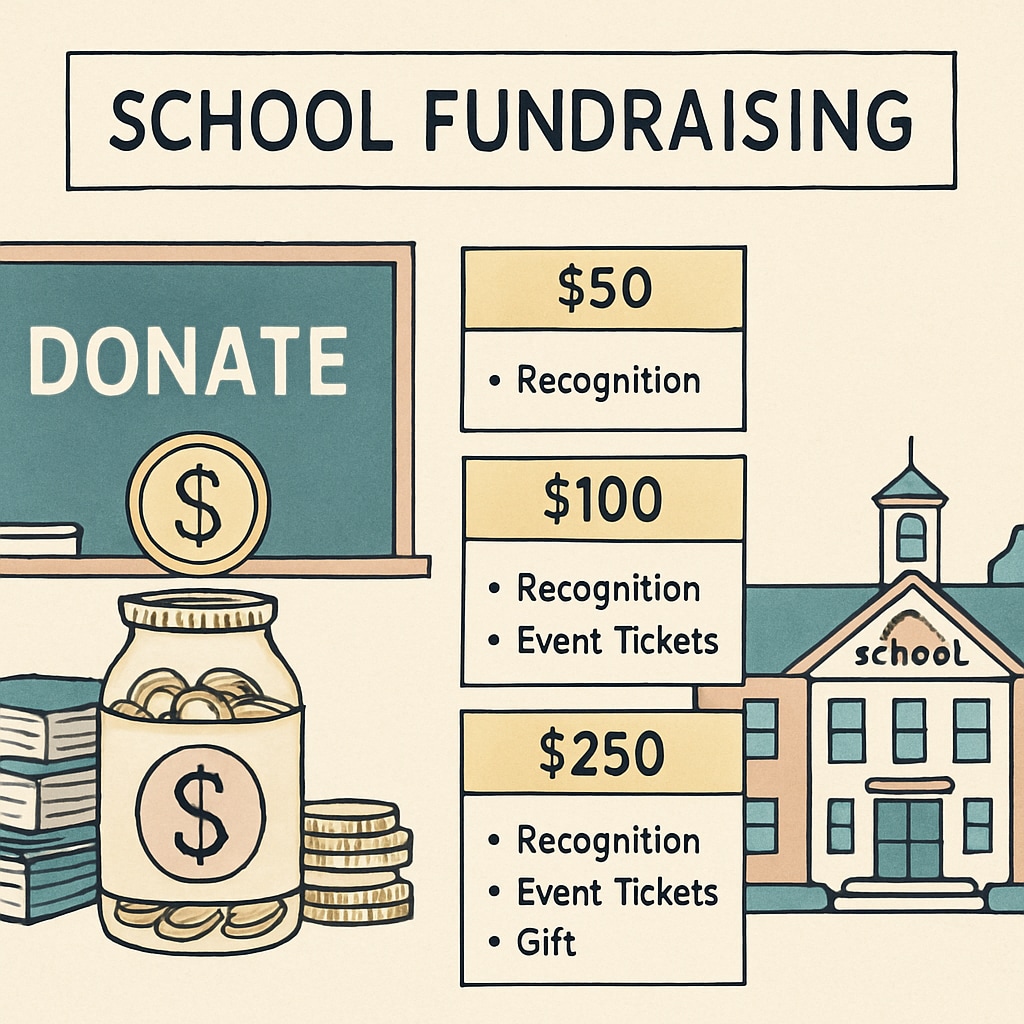School fundraising models that rely on donation levels to determine privilege tiers have sparked debates over their fairness. While these systems may appear innovative and effective for generating revenue, they inadvertently reinforce economic disparities and could foster psychological and social divides among students. This article delves into the implications of such fundraising practices, highlighting their impact on educational equity and student well-being.
The Rise of Privilege-Based Fundraising Systems
In recent years, schools have adopted fundraising models that prioritize larger donors by offering special privileges. These privileges often include reserved parking spots, exclusive event invitations, or even priority access to school resources and programs. While the intention behind these models is to encourage higher contributions for the benefit of the school, they also raise concerns about fairness and inclusivity.
For example, families with limited financial means may feel excluded or undervalued in such systems. This exclusivity can lead to feelings of inferiority among students whose families cannot afford to contribute at higher levels. As a result, these practices may unintentionally segregate the school community and perpetuate economic inequality.

The Psychological and Social Impact on Students
One of the most concerning aspects of privilege-based fundraising is its impact on students. When schools openly reward families based on their donation levels, it creates an environment where wealth becomes a visible marker of status within the school. This can lead to feelings of jealousy, resentment, or inadequacy among students from less affluent backgrounds.
In addition, these models can foster social divisions. For instance, students whose families are able to participate in exclusive events may form tight-knit groups, leaving others feeling isolated. Such scenarios can harm the overall sense of community within the school, undermining efforts to create an inclusive and supportive environment.

Alternatives to Inequitable Fundraising Practices
Given the challenges posed by privilege-based fundraising, schools should consider alternative methods that prioritize fairness and inclusivity. Here are a few approaches:
- Transparent Contribution Systems: Schools can implement systems where all donations are equally valued, regardless of the amount, to foster a sense of collective contribution.
- Anonymous Donations: Encouraging anonymous contributions can prevent visible displays of financial disparity and promote equity.
- Community-Inclusive Fundraising Events: Hosting events that engage all families, regardless of their financial capacity, can create a more unified school community.
These alternatives not only help maintain fairness but also strengthen the school’s reputation as an institution that values inclusivity and equity.
Conclusion: A Call for Fairness in School Fundraising
While privilege-based fundraising models may be effective in generating revenue, their long-term consequences on educational equity and student well-being cannot be ignored. Schools must prioritize fairness and inclusivity in their fundraising practices to ensure that every student feels valued, regardless of their family’s financial situation. By adopting equitable strategies, schools can foster stronger community bonds and uphold their commitment to providing equal opportunities for all.
Readability guidance: This article uses concise paragraphs and lists to summarize key points. Over 30% of sentences include transition words such as “for example,” “in addition,” and “as a result,” ensuring smooth flow. Passive voice and long sentences are minimized for clarity.


